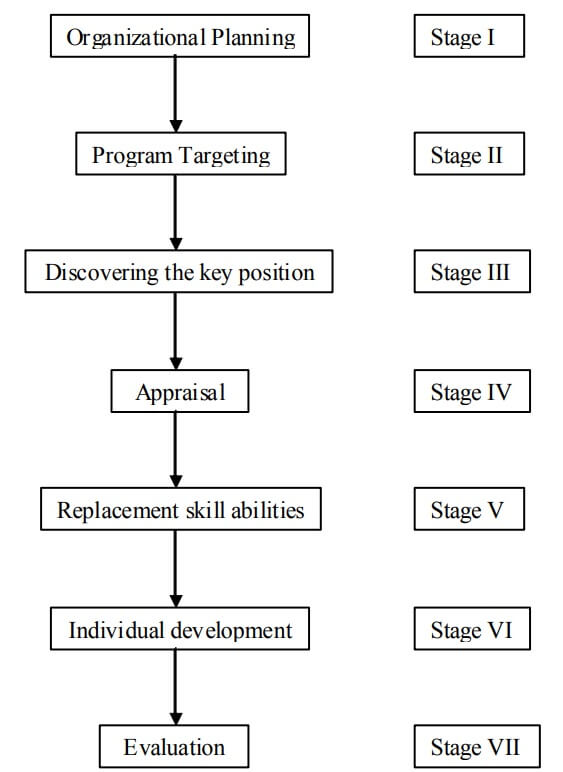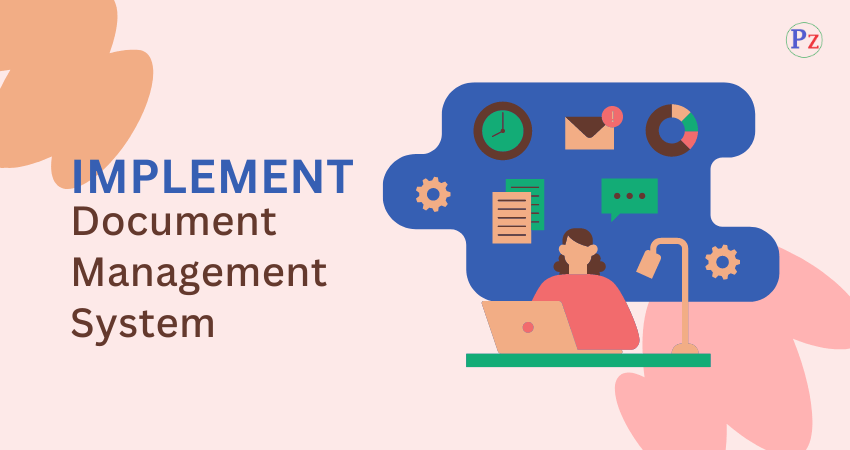Management development programs help in acquiring and developing managerial skill and knowledge. A Varity of methods of management development have come into prominence these days. Different types of techniques are used to acquire and develop various types of managerial skill and knowledge as given in the table below:
| Competency Development Area | Methods |
| Decision making skill | In-basket, Business games, Case study |
| Interpersonal skill | Role plying, Sensitivity Training |
| Job Knowledge | On-the-Job experiences, Coaching, Understudy |
| Organizational Knowledge | Job Rotation, Multiple Management |
| General Knowledge | Special course, Special Meeting, Specific Reading |
| Specific Individual Needs | Special Projects, Committee Assignments |
Managerial Training / Management development: The following diagram shows the stages involved in the managerial training.

In all above stages, we should satisfy the following essential aspects in order to make the programmes a success:
- Policy decisions
- Acceptance
- Appreciation
- Support
- Conductive atmosphere
- Strong urge for learning
- Participation
- Identification of strength and weakness
- Involvement
- Self-development
A number of executive development methods are available. Generally these methods are used in combination of two or more.
The various techniques of executive development may be classified into two broad categories:
On the Job Techniques: It is delivered to employees while they perform their regular jobs. In this way, they do not lose time while they are learning. After a plan is developed for what should be taught, employees should be informed of the details. A time-table should be established with periodic evaluations to inform employees about their progress.
On-the-job techniques include orientations, job instruction training, apprenticeships, internships and assistantships, job rotation and coaching.
Coaching – Coaching is a one-to-one relationship between trainees and supervisors which offers workers continued guidance and feedback on how well they are handling their tasks. The coach assigns the task, monitors the trainee behavior, and provides reinforcement and feedback. Coaching is commonly used for all kinds of trainees, from unskilled to managerial position. This method is critically depends on the quality of the coach.
Under Study – An understudy may be assistant to someone or special assistant to some supervisory or executive positions. He learns by experience, observation, guidance and coaching.
Position Rotation – This involves the movement of the trainee from one job to another. This helps him to have a general understanding of how the organization functions. Apart from releasing boredom, Job rotation allows workers to build rapport with a wide range of individuals within the organization, facilitating future cooperation among various departments. Such cross rained personnel offer a great deal of flexibility for organizations when transfers, promotions or replacement become inevitable.
Multiple Management – It provides knowledge about the organization to the junior and middle managerial personnel. Here the members are exposed to all types of the decision taken at higher level.
Off-the-Job Technique : It consists of –
Lectures – It is a traditional and direct method of instruction. The instructor organizes the material and gives it to a group of trainees in the form of a talk. To be effective, the lecture must motivate and create interest among the trainees.
An advantage of this method is that it is direct and can be used for a large group of trainees. The major limitation of this method is that it does not provide for the transfer of training effectively.
Case Studies – It presents the trainees with a written description of a business or organizational problem. The object of the case method is to teach the trainees how to analyze information, generate alternative decisions, and evaluate the alternatives. Cases can be analyzed by individuals or small groups. Feedback and reinforcement are provided through oral discussion or written comments from the instructor.
Group Discussions – This method is a direct discussion on a specific topic conducted with a relatively small group of trainees. This method is useful for teaching and exploring difficult conceptual materials, and for changing attitudes and opinions. It provides opportunity for feedback, reinforcement practice, motivation, and transfer, largely due to the active interchange of ideas between the participants.
Role Playing – In most of role-playing assignments, each of the student takes the role of a person affected by an issues on human life and effect the human activities all around us from the perspective of that person.
Management Games – Verities of business and management games have been devised and are being used with the varying degree of success in the developing programmes. A management game is classroom exercise in which a number of team of trainees competes against each other to achieve certain objectives.
Sensitivity Training – It has been successfully employed by behavioral scientists over the past thirty years. Sensitivity to the circumstances and feeling of others is the cornerstone of human relationships. It is important to note that sensitivity is not just an emotion; it must express itself in actions as well, especially when people we know are experiencing pain and difficulties.




